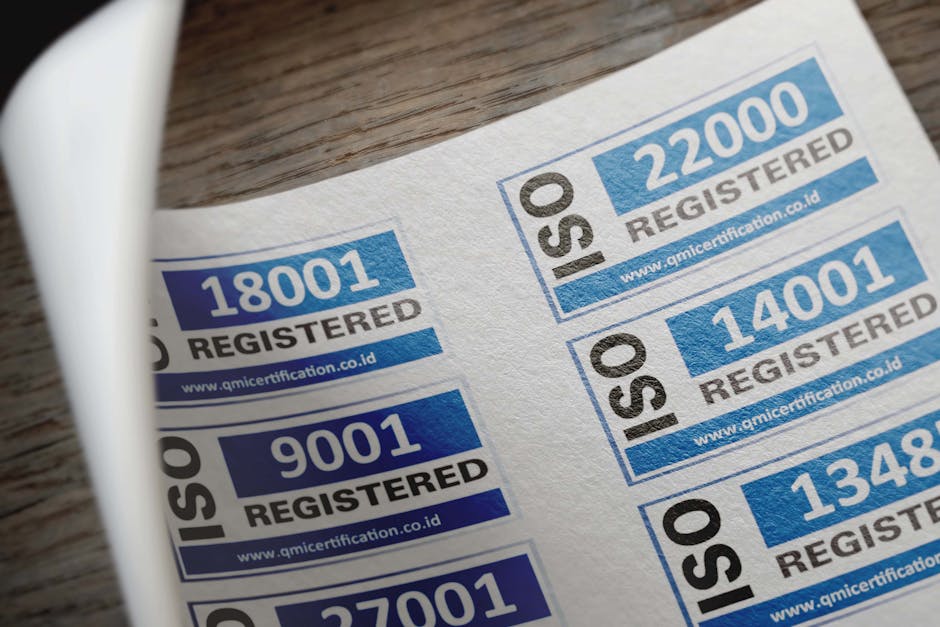Ensuring Compliance in Property Management
Did you know that over 50% of property managers face legal issues every year due to non-compliance? Keeping up with laws and regulations can be daunting, but it’s crucial for successful property management. Lets explore how to ensure compliance effectively and confidently.
What Does Compliance Mean in Property Management?

Compliance in property management means following all the laws, rules, and regulations that govern how you manage properties. These can vary by state, city, or even neighborhood. Understanding these rules helps protect you from legal troubles and ensures you treat tenants fairly.
Why is Compliance Important?

Ignoring compliance can lead to serious consequences. Here are a few reasons why it matters:
- Legal Protection: Compliance helps you avoid lawsuits and fines.
- Tenant Satisfaction: Following the rules builds trust and keeps your tenants happy.
- Reputation Management: A compliant property management company earns respect and credibility.
By staying compliant, you protect your investment and create a positive living environment.
What Laws Should Property Managers Know?

There are many laws that property managers must understand. Some major ones include:
- Fair Housing Act: This law prohibits discrimination based on race, color, national origin, religion, sex, familial status, or disability.
- Landlord-Tenant Laws: These laws differ by state and cover topics like security deposits, lease agreements, and eviction processes.
- Building Codes: Local building codes ensure that properties are safe and habitable. Regular inspections may be required.
Knowing these laws is your first step toward compliance. But how can you stay updated?
How Can Property Managers Stay Updated on Regulations?

Keeping track of changing laws can feel overwhelming. Here are some effective strategies:
- Join Professional Associations: Groups like the National Apartment Association often provide resources and updates on legal changes.
- Attend Workshops and Seminars: Educational events can help you learn about new laws and best practices.
- Consult Legal Experts: Hiring or consulting with a real estate attorney can clarify complex regulations.
By staying informed, you can adjust your management practices to align with laws.
What Are Common Compliance Mistakes?
Even experienced property managers can make mistakes. Here are a few common compliance pitfalls:
- Ignoring Local Ordinances: Some managers focus on state laws and overlook local rules.
- Improper Handling of Security Deposits: Mismanaging deposits can lead to legal complaints.
- Failing to Provide Necessary Disclosures: Certain disclosures, like lead paint information, are legally required.
Awareness of these mistakes can help you avoid them.
How Can Technology Help with Compliance?
Technology can be a game changer in managing compliance. Here are a few tools that can help:
- Property Management Software: Programs like Buildium or AppFolio help track lease agreements and automate reminders for renewals.
- Tenant Screening Services: These services help ensure you comply with Fair Housing laws during tenant selection.
- Online Forms and Documents: Electronic records can streamline compliance with documentation and keep everything organized.
Using technology effectively can save time and reduce the risk of errors.
What Are the Best Practices for Ensuring Compliance?
Implementing a few best practices can help you maintain compliance:
- Regular Training: Keep your staff informed about compliance issues through regular training sessions.
- Documentation: Keep detailed records of all tenant communications, maintenance requests, and lease agreements.
- Compliance Checklists: Create a checklist for important compliance tasks to ensure nothing is overlooked.
These practices can create a strong compliance culture within your property management team.
How Can You Handle Non-Compliance Issues?
If you discover a compliance issue, act quickly. Heres what to do:
- Identify the Problem: Clearly define what the compliance issue is.
- Assess the Impact: Determine how the issue affects your tenants and your business.
- Consult Experts: Reach out to legal professionals for guidance on how to address the issue.
- Implement Solutions: Make necessary changes to resolve the issue and prevent it from happening again.
Taking swift action shows tenants that you care about compliance and their well-being.
What Are the Consequences of Non-Compliance?
Understanding the consequences of non-compliance can motivate you to stay on track:
- Fines and Penalties: Many jurisdictions impose hefty fines for violations.
- Legal Action: Tenants may take legal action against you for failing to follow laws.
- Loss of Reputation: Non-compliance can damage your reputation, making it harder to attract tenants.
Being aware of these consequences can serve as a strong incentive to prioritize compliance.
What Are Some Real-World Examples of Compliance Issues?
Real-life stories highlight the importance of compliance. For instance:
- A landlord in California: Faced a lawsuit for failing to provide proper heating, violating state housing codes.
- A property manager in New York: Paid fines for not adhering to the Fair Housing Act during tenant screenings.
These examples show that compliance is not just a box to check; it’s vital for your success.
What Are the Key Takeaways for Property Managers?
Ensuring compliance in property management requires ongoing effort. Here are the key points to remember:
- Stay informed about laws and regulations that affect your property.
- Use technology to streamline compliance.
- Implement best practices and conduct regular training.
- Act quickly if compliance issues arise.
By prioritizing compliance, you not only protect your business but also create a safe and respectful environment for your tenants.
For more information on property management compliance, check out [Nolos guide on landlord-tenant laws](https://www.nolo.com/legal-encyclopedia/overview-landlord-tenant-law-29753.html).
In conclusion, compliance is not just a legal obligation; it’s a vital part of running a successful property management business. Stay informed, use the right tools, and always prioritize your tenants’ well-being.


